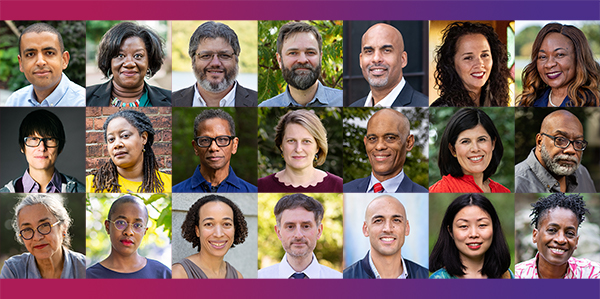MacArthur named 25 new MacArthur Fellows for 2006. The new Fellows work across a broad spectrum of endeavors. They include a developmental biologist, a sculptor, a country doctor, a jazz violinist, and a deep-sea explorer. All were selected for their creativity, originality, and potential to make important contributions in the future. This past week, the recipients learned by a phone call from the Foundation that they will each receive $500,000 in “no strings attached” support over the next five years.
“Selection for a MacArthur Fellowship is the culmination of an intensive review of the creative efforts and promise of each Fellow. Our call comes as a complete surprise and offers the new Fellows the gift of time and an unfettered opportunity to reflect, explore, and create,” said MacArthur President, Jonathan Fanton.
MacArthur Fellowships come without stipulations or reporting requirements, offering the opportunity for Fellows to accelerate their current activities or take their work in new directions. The unusual level of independence afforded to Fellows underscores the spirit of freedom intrinsic to creative endeavors. Fellowships are awarded to women and men of all ages and at all career stages; the extraordinary creativity of MacArthur Fellows knows neither boundaries nor the constraints of age, place and endeavor.
Recipients this year include:
-
a jazz violinist inventing a modern repertoire for the violin in contemporary and improvisational music (Regina Carter)
-
a developmental biologist investigating cellular differentiation and plasticity and moving the field an important step closer to therapeutic applications for myriad human diseases (Kevin Eggan)
-
an illustrator/writer celebrating civilization’s greatest architectural and engineering achievements (David Macaulay)
-
a deep-sea explorer inventing technologically innovative device for observing and collecting data from the ocean’s depths (Edith Widder)
-
a country doctor revolutionizing service, research, and outcomes for clinical treatment of rare genetic diseases (D. Holmes Morton)
-
an aviation engineer expanding the abstract mathematical principles of control systems theory to address practical problems in such areas as aircraft flight control and collision avoidance (Claire Tomlin)
-
a narrative journalist forging a new form of literary journalism with an eye for detail and a passion for depth to illuminate world’s little known and less understood (Adrian Nicole LeBlanc)
-
a naturalist helping people of all ages to see the beauty, history, and value in swamps, bogs, kettle ponds, and rivers (David Carroll)
-
a sculptor recasting the decorative and functional traditions of glass art through exquisite creations that invite thoughtful reflection (Josiah McElheny)
-
a cosmologist analyzing faint signatures of the Big Bang and developing valuable interpretive tools to piece together the early history of the cosmos (Matias Zaldarriaga)
“There is something palpable about this group of MacArthur Fellows – about their character as explorers and pioneers at the absolute cutting edge. These are people pushing boldly to change, improve, and protect our world, to make it a better place for all of us. This program was designed for such people – designed to provide an extra measure of freedom, visibility, and opportunity to sustain and nurture their trajectories,” said Daniel J. Socolow, Director of the MacArthur Fellows Program
The MacArthur Fellows Program was the first major grantmaking initiative of the Foundation. The inaugural class of MacArthur Fellows was named in 1981. Including this year’s Fellows, 732 people, ranging in age from 18 to 82 at the time of their selection, have been named MacArthur Fellows since the inception of the program.
“The annual announcement of the MacArthur Fellows is a special opportunity to celebrate the creative individual in our midst,” said Jonathan Fanton. “For 26 years, the MacArthur Fellows Program has recognized and supported individuals who inspire us. This new group of MacArthur Fellows illustrates our conviction that talented and creative individuals, free to follow their insights and instincts, will reveal new discoveries and make a difference in shaping our future.”
The selection process begins with formal nominations. Hundred of anonymous nominators assist the Foundation in identifying people to be considered for a MacArthur Fellowship. Nominations are accepted only from invited nominators, a list that is constantly renewed throughout the year. They are chosen from many fields and challenged to identify people who demonstrate exceptional creativity and promise. A 12‑member Selection Committee, whose members also serve anonymously, meets regularly to review files, narrow the list, and make final recommendations to the Foundation’s Board of Directors. The number of Fellows selected each year is not fixed; typically, it varies between 20 and 25.



